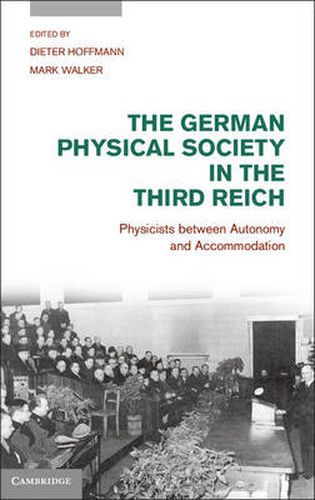Readings Newsletter
Become a Readings Member to make your shopping experience even easier.
Sign in or sign up for free!
You’re not far away from qualifying for FREE standard shipping within Australia
You’ve qualified for FREE standard shipping within Australia
The cart is loading…






This is a history of one of the oldest and most important scientific societies, the German Physical Society, during the Nazi regime and immediate postwar period. When Hitler was appointed chancellor of Germany in 1933, the Physical Society included prominent Jewish scientists as members, including Fritz Haber and Albert Einstein. As Jewish scientists lost their jobs and emigrated, the Society gradually lost members. In 1938, under pressure from the Nazi Ministry of Science, Education and Culture, the Society forced out the last of its Jewish colleagues. This action was just the most prominent example of the tension between accommodation and autonomy that characterized the challenges facing physicists in the Society. They strove to retain as much autonomy as possible, but tried to achieve this by accommodating themselves to Nazi policies, which culminated in the campaign by the Society’s president to place physics in the service of the war effort.
$9.00 standard shipping within Australia
FREE standard shipping within Australia for orders over $100.00
Express & International shipping calculated at checkout
This is a history of one of the oldest and most important scientific societies, the German Physical Society, during the Nazi regime and immediate postwar period. When Hitler was appointed chancellor of Germany in 1933, the Physical Society included prominent Jewish scientists as members, including Fritz Haber and Albert Einstein. As Jewish scientists lost their jobs and emigrated, the Society gradually lost members. In 1938, under pressure from the Nazi Ministry of Science, Education and Culture, the Society forced out the last of its Jewish colleagues. This action was just the most prominent example of the tension between accommodation and autonomy that characterized the challenges facing physicists in the Society. They strove to retain as much autonomy as possible, but tried to achieve this by accommodating themselves to Nazi policies, which culminated in the campaign by the Society’s president to place physics in the service of the war effort.